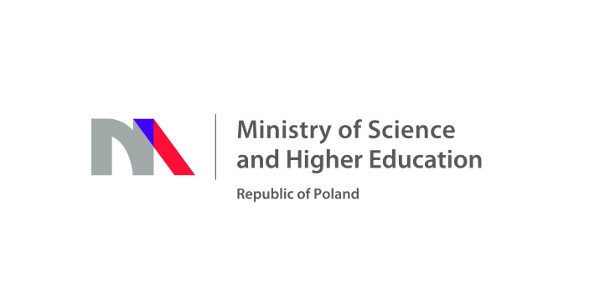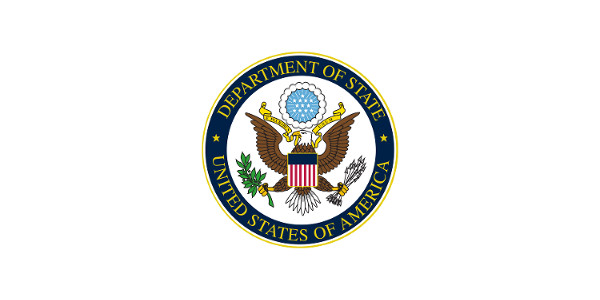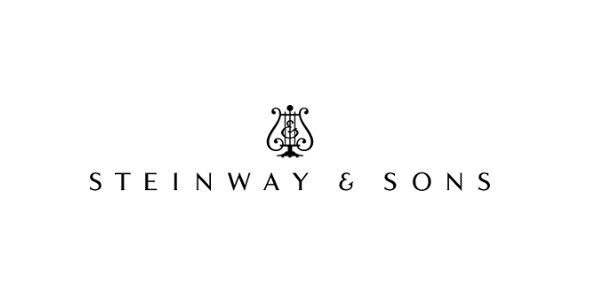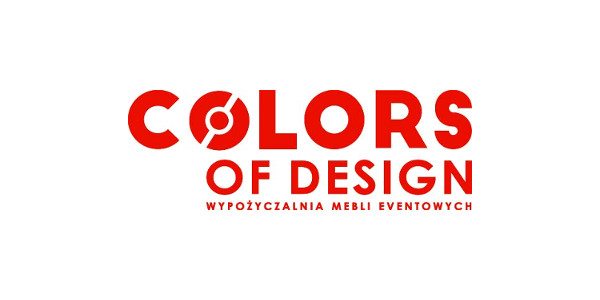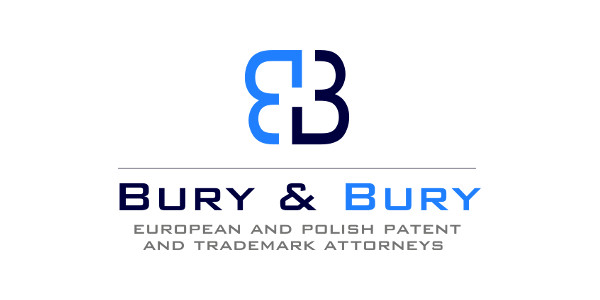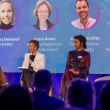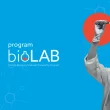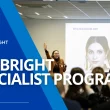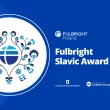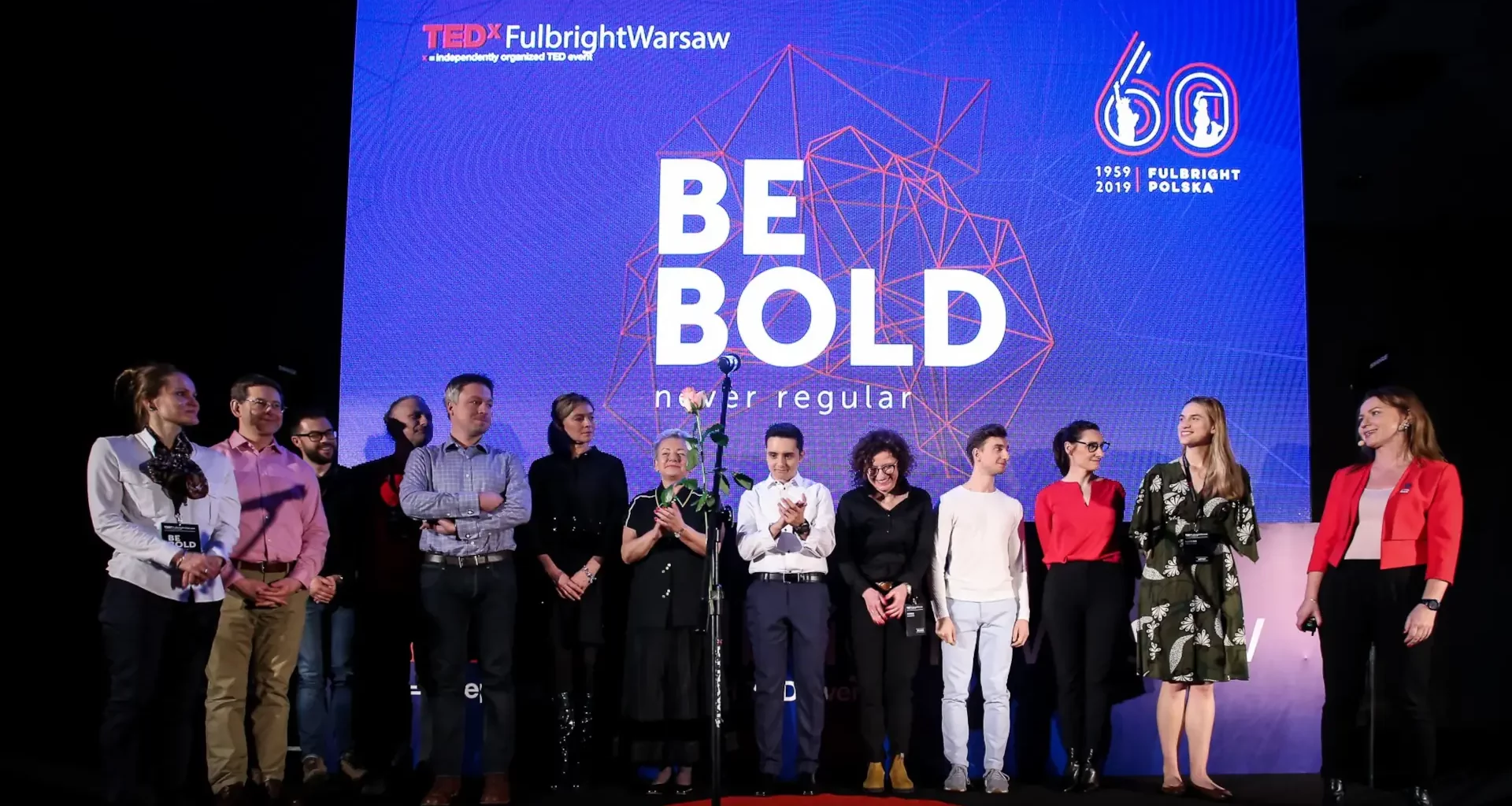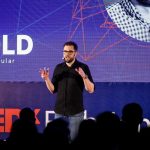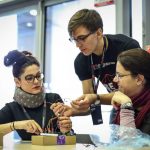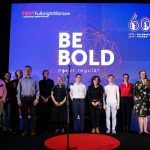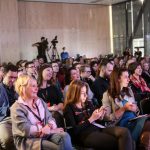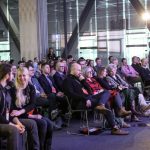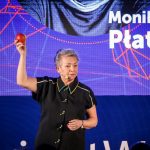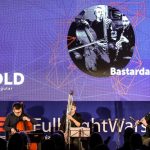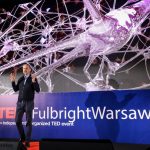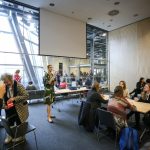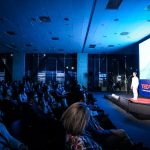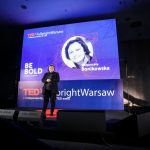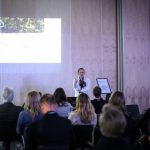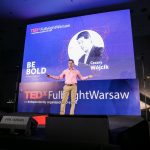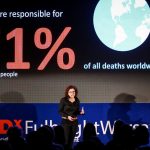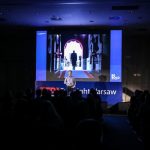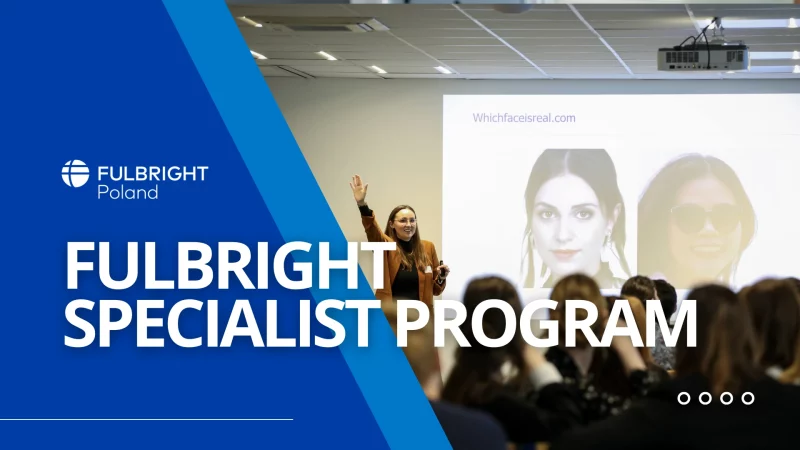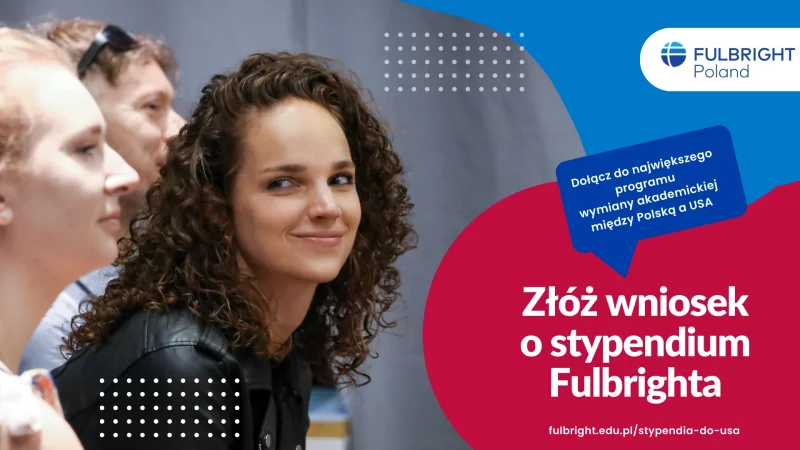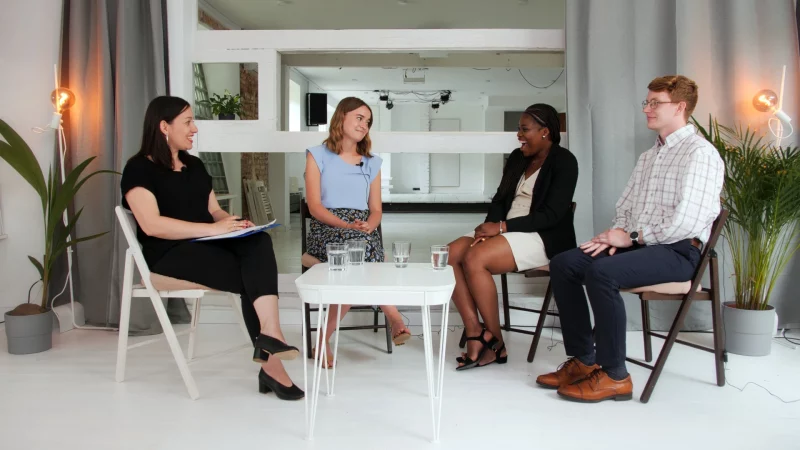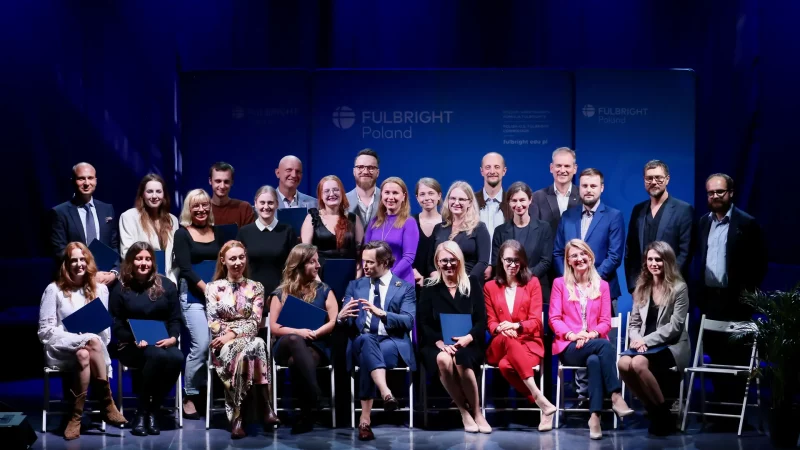Senator J. William Fulbright takimi słowami określił Program Fulbrighta: „Skromny program z nieskromnym wielkim celem.” Podobną analogię możemy odnaleźć w opisach konferencji TED organizowanych na całym świecie, są to bowiem proste wystąpienia przedstawiające fenomenalne i ponadprzeciętne idee. A jakie idee przedstawili nasi alumni?
Podczas zorganizowanego 29 stycznia w Centrum Nauki Kopernik TEDxFulbrightWarsaw, wydarzenia inaugurującego 60-lecie Programu Fulbrighta w Polsce, na wszystkich uczestników czekała potężna dawka inspiracji, motywacji oraz przede wszystkim wiedzy.
Tematem przewodnim prezentowanych przemówień było hasło „Be Bold. Never Regular”, gdzie wspólnym mianownikiem dla wszystkich naszych mówców – biologów, psychologów, prawników oraz przedstawicieli innych dziedzin – była odwaga do wychodzenia przed szereg, tak niezbędna do zmieniania świata. Jest to także odwaga, która charakteryzuje każdego absolwenta Programu Fulbrighta.
Głównym przesłaniem konferencji TED jest szerzenie „idei wartych rozpowszechniania”, dlatego rozpoczęcie naszego jubileuszowego roku właśnie tym wydarzeniem pokazuje, że Program Fulbrighta łączy osoby różnych dyscyplin zaangażowanych w kreowanie współczesnego świata.
Program wydarzenia prezentował się następująco:
Leszek Kaczmarek – “Understanding mind in the brain” / „Zrozumieć umysł w mózgu”
What is mind actually? How it works and what are the triggers to learn and memorize, to develop desires and dellusions? Studies on connection between brain and mind are conducted since thirty years at Nencki Institute of Experimental Biology to reveal this connection.
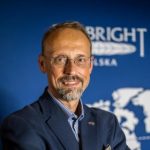
Leszek Kaczmarek is a professor and head of the Laboratory of Neurobiology at the Nencki Institute, Warsaw; Poland. His research aims at understanding the brain-mind connection. He believes that it is possible to localize specific mind functions into the brain and then reveal their molecular and cellular underpinnings. The window to understand mind is learning and memory that can be successfully studied in experimental animals. At the molecular and cellular levels, phenomenon named synaptic plasticity appears to provide plausible explanation for those phenomena. Over the last 30 years his lab identified a synaptic molecule that is produced and released in response to enhanced neuronal activity to play a paramount role in the synaptic plasticity, learning and memory as well as in such neuropsychiatric disorders in humans as epilepsy, alcohol addiction, schizophrenia and bipolar disorder.
Małgorzata Bonikowska – “Politics of the future: possible consequences of the Revolution 4.0” / „Polityka przyszłości: możliwe konsekwencje Rewolucji 4.0”
The digital era gave everyone the opportunity to speak in public debate, but did not prepare for the speed of change and the scale of new information. The Fourth Industry Revolution will change not only business but every area of our lives, including politics – although it still functions according to old models. This process will probably be long, but revolution and conflicts can not be ruled out. Therefore, let’s look for politics not showmans but smart but responsible guides.
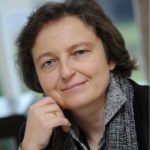
Małgorzata Bonikowska is a political scientist and EU expert, media commentator in international affairs, President of the Centre for International Relations (www.csm.org.pl)–a leading Polish independent think tank in foreign affairs–and co-founder of the THINKTANK Centre (www.think-tank.pl), as well as the publisher of “THINKTANK” journal. Dr. Bonikowska specializes in European Studies and international affairs. She was born in Poland, where she studied European History and political and social sciences. Graduated from Warsaw University, State Academy of Arts (history of culture) and University of Sorbonne in Paris, completed doctoral programs at the Postgraduate School of Social Sciences in the Polish Academy of Sciences and at the International Postgraduate School of Historical Sciences in the San Marino Republic. In 1996-97 she was a visiting scholar at Political Sciences Department and School of International and Public Affairs (SIPA) of Columbia University in New York under the umbrella of the Fulbright Program. Dr. Bonikowska started professional carrier in 1989 as representative of an Italian company to Poland. After completing MA and post graduate studies, worked as editor in current affairs department of the Polish Public Television (1995-1998). After having defended a PhD thesis, moved to the Ministry of European Integration as Head of the European Information Centre as well as Adviser to the Minister (1998-2001) coordinating the network of the EU information centers in the country. In 2001-2007 dr Bonikowska worked for the European Commission as expert and Director of the EU Information and Communication Program – first in Poland and then in Bulgaria. In 2007-2017 she was senior advisor at the Centre for Human Resources Development under the Ministry of Labor and Social Policy. She was also consultant and advisor to the sever Ministers (Ministry of Foreign Affairs, Ministry of Economy, Ministry of Regional Development, Ministry of Education and Ministry of Health). Since PhD, Dr. Bonikowska has been continuing academic career as associate professor, researcher, tutor and manager at public and private universities, among others as Deputy Rector of Warsaw School of Management and Marketing (2002-2003) and Rector of Enterprise Academy in Warsaw (2003-2006). Dr Bonikowska has been editor and supervisor of over 60 publications (books, brochures, leaflets, fact sheets, CDs), author of over 150 articles and co-author of 3 books.
How modern information technologies, especially social media and smartphones, impact on the society? It influence the people on every level: personal, small groups and society in general. Behavioral and psychological factors of it causes problems such as low attention span, inability to make strong and lasting bonds, constant need of approval and finish with the examples of social engineering and cyber warfare – fake news, troll armies, election meddling. Is there any way to stop it?
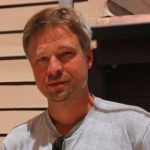
Kacper Gradoń is an Associate Professor at the Faculty of Law at the University of Warsaw and the Director of the University of Warsaw Center for Forensic Sciences. He also holds the position of the Honorary Senior Research Associate at the Department of Security and Crime Science at the University College London, and is the Faculty Affiliate of the Center for the Study and the Prevention of Violence at the University of Colorado Boulder. Kacper has spoken at over 200 academic and police conferences on every continent but Antarctica (and he hopes to get there, too!). He has held Visiting Professor positions in the USA, UK, and Canada, and has over 8 years of experience living and working abroad. Kacper was the UoW primary investigator of the European Commission FP7 project PRIME dealing with the radicalization, violent extremism, and lone-actor terrorism. He is the recipient of numerous awards, grants, and scholarships. He has completed several law-enforcement training sessions and professional development courses and has worked directly with police forces worldwide for twenty years. His main research area during the first ten years of his academic career was serial and mass homicide. Since then, he’s focused primarily on the study of terrorism and cyber-enabled crimes. He develops the research agenda dealing with the so-called „future crimes”, where the Internet (and associated information technologies) are becoming the new battlefield for the law enforcement and criminals. He is an avid free-ride skier, long-distance runner, and mountain climber, as well as a 60s/70s vinyl LP collector. Kacper is the 2018 Fulbright Senior Award alumnus (University of Colorado Boulder).View less
Video games are a large entertainment industry but their public perception is far from perfect. And yet, there are several compelling reasons why we should take video games VERY seriously.
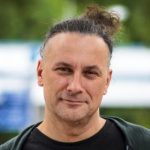
Paweł Frelik is an Associate Professor in the American Studies Center at the University of Warsaw, where he also leads the Speculative Texts and Media Research Group. His research and teaching interests include science fiction, video games, and unpopular culture. He has published widely in these fields, serves on the boards of Science Fiction Studies, Extrapolation, and Journal of Gaming and Virtual Worlds, and is the co-editor of the New Dimensions in Science Fiction book series (University of Wales Press). He has also lectured widely on these topics outside academia. He’s talked about video games in California, short films in Florida, and the architecture of cinematic spaceships at the British Film Institute in London. He currently serves as the Science Fiction Division Head of the International Association for the Fantastic in the Arts. In the past he was President of the Science Fiction Research Association, the first in the organization’s history from outside North America, and Vice President of the European Association for American Studies. He is also the first non-anglophone recipient of the Thomas D. Clareson Award for Distinguished Service in the field of science fiction studies. He also has worked several parallel careers throughout the past twenty-five years. He’s worked as a stage manager in an Edinburgh theater; written lyrics for the premiere Polish metal band Vader; and has authored over 1,500 reviews and articles for a dozen music and cultural newspapers and magazines. He’s also translated, among other texts, Harry Matthews’ postmodern fiction into Polish and the biography of Behemoth (a Polish metal band) into English. He loves the Mojave.
„Do we understand animals? Do we really know what they need? Or maybe we just give them what WE THINK they need?
By getting the knowledge from the combination of psychology and cultural differences we can look at animals as someone coming from other culture.
Understanding that animals have their psyche we can notices complexity of their needs, also psychological.”
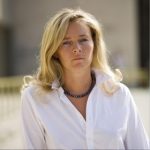
Hanna Mamzer is a psychologist and sociologist specializing in in sociology of culture and contemporary civilizations, with a focus on issues of identity and multiculturalism. Her recent research interests moved towards posthumanism. Dr. Mamzer is associate professor at the Adam Mickiewicz University in Poznan, she has also experience in lecturing abroad, including Europe, Africa, Asia, Central America and United States. She also provides workshops and trainings in soft skills development. Recipient of many distinguished awards, including Fulbright scholarship, Central European University scholarship, British Council scholarship and European University Institute scholarship. Dr. Mamzer is a member of Local Ethical Committee for Experiments on Animals and holds position of witness expert for Polish courts in animal welfare as well.
About 65% of medicines prescribed daily to children worldwide have never been tested with pediatric populations. Doctors prescribe them because there is no alternative. Bioethicist Marcin Waligora shows us what are the main obstacles for clinical trials with children and how to improve ethics framework.
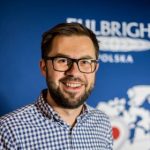
Marcin Waligóra is a bioethicist specializing in ethics and policy of biomedical research with human beings. Currently he works on methods and regulations of clinical trials with children. He is an Associate Professor in the Department of Philosophy and Bioethics at Jagiellonian University Medical College in Krakow, where he directs the REMEDY (Research Ethics in Medicine Study Group). Marcin spent the last academic year at the Harvard Medical School Center for Bioethics as a Fulbright Scholar. More about Marcin’s year at Harvard can be found here: http://bioethics.hms.harvard.edu/news/connecting-research-and-democracy.
„Every 2 seconds someone aged 30 to 70 years dies prematurely from non-communicable diseases such as stroke or diabetes. And yes, we already know that our diet puts us at a greater risk of developing this type of condition. But is it possible that our eating habits can also influence the health of future generation? And to go one step further – can breaking our bad dietary behaviors improve the well-being of our children?

Monika M. Kaczmarek is a professor at the Department of Hormonal Action Mechanisms in the Institute of Animal Reproduction and Food Research, Polish Academy of Sciences in Olsztyn, where she also leads Molecular Biology Core Facility. Her research interests are wide, but at the very most related to biology of reproduction, which for almost a decade have been focused on untangling the role of non-coding RNAs in embryo-maternal dialog leading to successful pregnancy. In 2009-10 she visited Pennington Biomedical Research Center, Louisiana State University in Baton Rouge under the umbrella of the Fulbright Program. Since then her interests evolved towards understanding the mechanisms of nutritional programming of reproductive performance over generations. Since early stages of her scientific career she acknowledges the fundamental role of international research cooperation in accelerating joint progress of global science. Monika is strongly committed to promoting new generations of researchers. She is a mentor in the TopMinds training and mentoring Program for young scientists. She has an extensive track record of lectures on the topics related to reproduction and endocrinology delivered both in-house and outside her host Institute, e.g., at the Warsaw University of Life Science and the Hebrew University of Jerusalem, as well as outside the academia. Monika is dedicated to translating her research findings to the society and actively engages in science celebration events such as the European Researchers’ Night. She was awarded several scientific fellowships and research grants and has provided a broad range of services to the scientific community as well as governmental and professional organizations. In the past she was a member of The Polish Young Academy and Council of the National Congress of Science. In 2017 she joined Board of Directors of the Polish-U.S. Fulbright Commission. She loves to travel and modern dance performances. Her life motto is “Go beyond your limits on an everyday basis”.
How we can proceed while we don’t have impact on everything what is going around us? We should try to find what is good in this reality and start to build on it. With this in mind Center for Leadership in Poland was created to support initiatives intended to make a positive difference in the world.
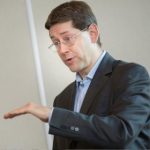
Professor of finance and leadership, the founder of the Center for Leadership, former visiting scholar at Harvard, Berkeley, Melbourne, Glasgow and other universities. Studied at Harvard University where he completed, among other things, a Master Class for Leadership Educators, and at other leading schools, such as IESE Business School and HEC Paris. In 2011, received a Letter of Achievement in recognition of his dedication to leadership development from Harvard Kennedy School Government. In the past served as: Member of Macroeconomic Council to the Minister of Finance, Advisor to the Governor of the National Bank of Poland (NBP), Director of Bureau of Integration with the Euro Area at the NBP, Director of the Institute of Economics of the Polish Academy of Sciences. Worked at three central banks: ECB, Austrian National Bank and NBP. In 2016, ranked 1. as the best candidate for the Monetary Policy Council in Poland. In the same year, he was the candidate of the opposition for this position. In 2009, named one of the first six best candidates. In 2009, before he was 35, he was appointed professor of economics, one of the youngest in Poland. Author of a number of academic papers and nine books published in the USA, the UK, Germany, Austria, Estonia and Hungary. His work has been published and quoted in: The Guardian, Frankfurter Allgemeine Zeitung, Die Zeit, Handelsblatt. In a study for 2001–2006, he topped the list of most quoted Polish economists in world academic journals. The SSRN database – the largest global electronic repository of academic papers in social sciences – classifies him in the top 5% of academics in the world.
Does is law so complicated it can’t be understandable for everyone? There is a method called Street Law that allow students to immerse in every, even the hardest, case, understand it and pass the knowledge, skills and values to those most in need. This talk shows how it works and how can be implemented in students’ teaching.
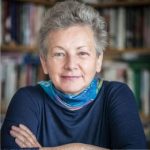
Monika Płatek is a professor and the head of the Criminology Department at the Institute of Penal Law, Faculty of Law and Administration at the University of Warsaw. In 1992 she received the Fulbright scholarship for the years 1992-1994. It changed her life. It was almost by an accident that she got a chance to get acquainted with Street Law clinic, which became her passion. She introduced that clinic first at her home institution, and next all over the former Soviet Union and other places. Street Law was an incentive to create the Polish Association for Legal Education (PSEP). Combining academic work with practice in non-governmental organization helps people learn how to be sensitive so they can react when faced with discrimination and injustice. After all this work, it was only logical for Monika to accept an invitation to teach gender jurisprudence at Gender Studies at the Polish Academy of Sciences. There she served as the Plenipotentiary of Polish Ombudsman, representing Victims’ Rights under Ombudsman Prof. Andrzej Zoll and as an adviser to Prime Minister Plenipotentiary of Equal Rights. Monika Płatek is also the Member of International Advisory Board of “The British Journal of Criminology” and “Social & Legal Studies.” She was awarded in 2014 the International Tolerance prize for fighting homophobia and the Equality prize for her work in the field of gender equality. Monika is a ‘93 and ‘94 Fulbright alumna. She was a Fulbright Visiting Scholar at the University of Illinois in Chicago.
Krystyna Malińska – “What is missing in academia?” / „Czego brakuje w środowisku naukowym?”
It is not a common practice in academic communities to share own experiences with students who – especially now, in the world of competitive labour markets and no longer clear and straightforward career paths – need help in facing the challenges and complexities of a life outside of university. Sharing own experiences with others is demanding, difficult and risky. But in the right environment academics would be more comfortable to share their own experiences with students and the students would easily ask for help and advice. That is why in 2016 a mentoring program called TopMinds was launched to help students make good career choices.

Krystyna Malińska is a researcher and academic lecturer at the Faculty of Infrastructure and Environment at Częstochowa University of Technology. Her work focuses on research in the field of environmental engineering, R&D project management, intellectual property rights and the commercialization of scientific results. Through teaching courses and performing research, she tries to encourage students to search for their own person passion and find their own career path. This is also the mission of the TopMinds training and mentoring program for students, which she coordinates together with the alumni from the Top 500 Innovators and Fulbright programs. She is proud that she can contribute to bridging the gap between academia and industry through research, development, and outreach. She pursues this goal by executing her own research projects, educating students, and promoting the principles of sustainable development and circular economy, but also through her work in consulting and shaping regulations, policies, and funding programs for research, development and innovations, and by helping research funding agencies to select projects that would bring the highest value to society and the economy.View less
Can you imagine if we read books in the same way we label people at first glance? You don’t have to go far to discover diversity. It is much closer than you think. it’s all around you at any given moment in time. Embrace each chapter with curiosity, patience, and an open mind, only then will you be able to discover its power.
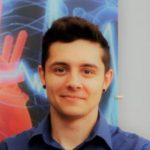
Dzhuliyan Vasilev is a biomedical engineer with specific interest in merging the fields of engineering, medicine, and entrepreneurship. He was born in Bulgaria and later immigrated to St. Louis, Missouri with his family at the age of six. In May 2017, Vasilev graduated from Saint Louis University with a Bachelor of Science in Biomedical Engineering and emphasis in Engineering Mathematics. While at Saint Louis University, he spent four years conducting research in the spheres of soft tissue engineering and microfluidics, in addition to founding the Engineering Health Collaborative, an organization focused on the development of low-cost medical devices for medically underserved countries. He was also a pre-medical fellow with the Atlantis Project in Athens, Greece during summer 2016, where he observed clinicians in the private and public hospital setting. Currently, Vasilev is working on a new entrepreneurial venture to develop a novel preventative medical device for catheter-associated urinary tract infections. Vasilev was a Fulbright English Teaching Assistant at the Medical University of Warsaw during the 2017-2018 grant period. During this time he also took part in the Fulbright Diversity Initiative, working to address the complex and international dimensions of the diversity debates within Fulbright, and aiming at practical results for the European Fulbright Commissions. Further, he collaborated with Fulbridge and Fulbright Prism to promote diversity and exchange of ideas within the Fulbright Program globally. Currently, he is continuing his role as a lecturer at the Medical University of Warsaw.
Ale to nie wszystko! Każdy z trzech paneli kończył się akcentem muzycznym, gdzie swoim talentem widownię oczarowali Bastarda Trio, Karolina Sanchewska oraz Dominik Good i Łukasz Lipski. Natomiast swoimi umiejętnościami z uczestnikami TEDxFulbrightWarsaw podzielili się Justyna Budzik, Karolina Sanchewska oraz Richard Egan podczas prowadzonych przez siebie warsztatów.
Nagrania przemówień
Wszystkie nagrania z TEDxFulbrightWarsaw dostępne są na kanale TEDx na Youtube. Zebraliśmy je w jedną playlistę dostępną tutaj.
Artyści
Każdy z trzech paneli kończył się akcentem muzycznym. Poniżej prezentujemy sylwetki artystów, którzy swoimi wystąpieniami uświetnili TEDxFulbrightWarsaw.
Bastarda Trio

Warsaw-based musicians with close ties to Lado ABC independent music scene are playing new and original interpretation of medieval music by Petrus Wilhelmi de Grudencz (1392 – c.1480). They improvise, use „viola bastarda” technique and get to the early music material in modern and very personal way. Clarinet, cello and contrabass clarinet gives us unique, warm sound and texture for medieval melodies and songs. Petrus works found in German, Polish and Czech manuscripts scattered throughout Europe, was completely unknown until very recently. Most of his compositions appeared anonymously, as was common in the Middle Ages. In the 1970s, however, Jaromír Černý, who was studying 15th-century Czech manuscripts, was struck by both the words and music of certain part-songs and motets. All these texts were acrostics, with the initial letters of consecutive words invariably forming the composers name. Petrus Wihelmi’s works are of two genres, songs and motets, differing in the way the words are set and in contrapuntal technique. The songs, usually in two parts, occasionally in three, are often very concise, with a tendency to symmetry and repetition of rhythmic patterns.
Karolina Sanchewska
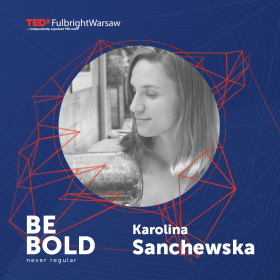
Karolina Sanchewska is a Polish-American botanist, singer, and artist. Although she was born in Poland, Karolina grew up in Florida, eventually working as a florist, a horticulturist at Fairchild Tropical Botanical Garden, and a professional singer. After getting her B.S. in Natural Resource Conservation with a focus in Botany from the University of Florida, Karolina was fortunate enough to be awarded a Fulbright grant to research epixylic (only growing on deadwood) moss species in Poland. In addition to her research, Karolina started the ‘Terrarium Project’ as a way to spread awareness of mosses and to help cultivate an appreciation for nature in Poland’s younger generation. With her Fulbright now over, Karolina and her husband Gabriel have decided to stay in Poland and are happily living in Krakow.
Dominik Good
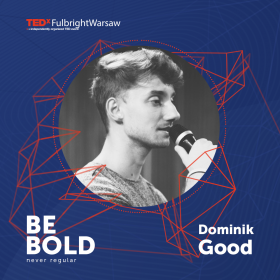
Dominik Good is a singer and songwriter, laureate of TopMinds program for students run jointly by the Polish-U.S. Fulbright Commission and Top 500 Innovators. Since the beginning of his artistic activity, Dominik has delved into feelings, inviting listeners to experience them with him. He says that singing defines his view of the world and sensitivity to what is around him, he believes that it is all about honesty, truth, understanding people and oneself. The artist regularly gives concerts and works on his own songs filled with emotions and motivation. Last year he sang at an International Festival of Singing Doctors, being also a successful student of Pomeranian Medical University. Apart from singing, his passions include music therapy, physical therapy and sports, especially calisthenics. He considers the repertoire of Tom Odell, Jessie Ware, Ed Sheeran and Czesław Niemen as the closest to his heart.
Galeria zdjęć
Więcej zdjęć z wydarzenia można znaleźć na naszym Facebooku oraz w galerii Google Photos. Autorem zdjęć jest Mariusz Kosiński.
Prowadzący warsztaty
Uczestnicy TEDxFulbrightWarsaw mieli okazję uczestniczyć w warsztatach prowadzonych przez stypendystów i absolwentów Programu Fulbrighta.
Justyna Budzik
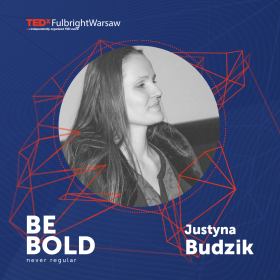
Justyna Budzik is an assistant professor at the Department of Film and Media Studies at the University of Silesia in Katowice. She spent 2016/17 academic year teaching Polish at the Institut national de langues et civilisations orientales in Paris, and 2017/18 academic year as Fulbright Visiting Lecturer at the Unviersity of Washington’s Slavic Department. Her main domains of research and pedagogical activity are: film education, media archaeology and teaching Polish as a foreign language. She gives lectures and leads workshops for students, pupils and teacher, in cooperation with cinemas, cultural institutions and NGOs. She is also a co-founder and member of the board of Foundation for Film and Photography (Fundacja dla Filmu i Fotografii) in Katowice. She runs an educational blog: www.lekcjeofilmie.pl.
Richard Egan
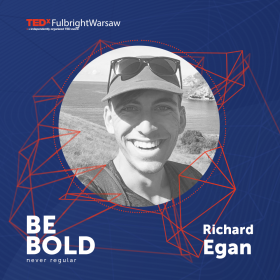
Richard “Rickey” Egan is a graduate of the University of Delaware, where he earned an honors degree in Chemical & Biomolecular Engineering. While enrolled, he participated in international student organizations on an almost daily basis, including International coffee hours, Delaware Diplomats, and even founded his own resident student organization aimed at improving local-international student relations on campus. In 2018-19 Egan is studying atmospheric chemistry at the University of Warsaw under Dr. hab. Tomasz Gierczak. As a sophomore, Richard traveled to Germany where he researched genetically-modified microorganisms for applications in biofuel production at the Technical University of Kaiserslautern, Germany. In his junior year, Egan traveled to the National University of Singapore where he studied transport phenomena on the Gilman Scholarship. Egan’s senior thesis was completed on the topic of solid-state chemistry, specifically the application of perovskites for photovoltaic applications. After graduation, Egan traveled to Hikone, Japan on the State Department’s Critical Language Scholarship to study Japanese. As a Fulbright Researcher, Egan hopes to improve our understanding of fundamental atmospheric chemistry and particulate formation concepts for use in more complicated models and predictive simulations. This contribution is offered in an effort to help ascertain the specific chemical mechanisms involved in the formation of the debilitating and deadly smog that results in an estimated 10,000 premature deaths in Poland every year. After his Fulbright research grant, Egan hopes to work in a research capacity at the United States’ Environmental Protection Agency on the topic of atmospheric chemistry and air pollution.
Karolina Sanchewska

Karolina Sanchewska is a Polish-American botanist, singer, and artist. Although she was born in Poland, Karolina grew up in Florida, eventually working as a florist, a horticulturist at Fairchild Tropical Botanical Garden, and a professional singer. After getting her B.S. in Natural Resource Conservation with a focus in Botany from the University of Florida, Karolina was fortunate enough to be awarded a Fulbright grant to research epixylic (only growing on deadwood) moss species in Poland. In addition to her research, Karolina started the ‘Terrarium Project’ as a way to spread awareness of mosses and to help cultivate an appreciation for nature in Poland’s younger generation. With her Fulbright now over, Karolina and her husband Gabriel have decided to stay in Poland and are happily living in Krakow.
Podziękowania
TEDxFulbrightWarsaw to miesiące przygotowań i zaangażowania wielu osób i instytucji. Bez ich wsparcia organizacja tego wydarzenia nie byłaby możliwa. Dziękujemy partnerom wydarzenia: Ministerstwu Nauki i Szkolnictwa Wyższego, Departamentowi Stanu USA, Steinway and Sons, Colors of Design oraz Bury & Bury Kancelaria Patentowa.
Chcielibyśmy także podziękować:
- Trenerkom Aleksandrze Dudek oraz Emilii Zajfert za przygotowanie naszych mówców do prezentowania w TEDx-owym formacie.
- Wolontariuszom, którzy pomagali nam od strony techniczno-logistycznej: Lydii Conklin, Richardowi Eganowi, Ewie Czech, Natalii Skrzeczkowskiej, Ali i Patrycji Fixl, Oldze Kurowickiej, Armandowi Doroszowi oraz Piotrowi Wojciechowskiemu.
- Ośrodkowi Studiów Amerykańskich UW, Przestrzeni from Facebook oraz Centrum Kreatywności Targowa 56 za użyczenie sal na warsztaty i próby.
- Oraz oczywiście naszym mówcom, prowadzącym warsztaty i artystom, którzy nadali finalny kształt wydarzeniu TEDxFulbrightWarsaw.
Partnerzy
